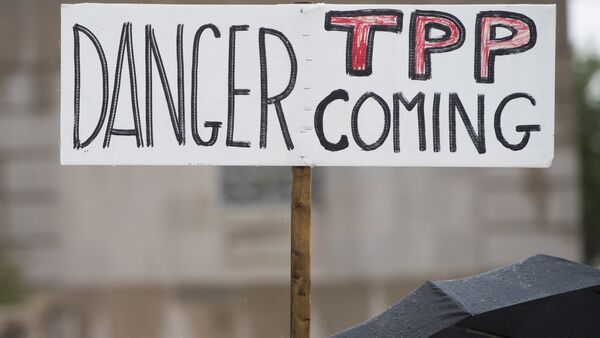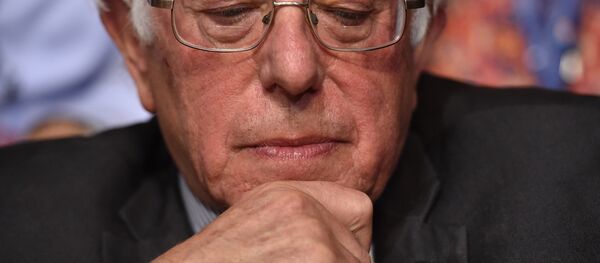The current administration sees the US losing political influence in the Pacific Rim, and is attempting to solidify its cooperation with perceived US allies in the region by promoting a greater interconnectedness, which it hopes to achieve through the power of multinational corporations.
"The president is going to make a strong case that we have made progress and there is a path for us to get this done before the president leaves office," Josh Earnest, spokesperson for the Obama administration, said. Obama is going on a tour of Asia this week.
The statement sparked outrage on both the environmentalist, labor-conscious political left, and the protectionist, national-economy minded right wing of the spectrum.
Economist and Noble laureate Joseph Stiglitz, who has won praise on the left, said that Barack Obama's effort to get the deal approved in Congress is "outrageous" and "absolutely wrong".
"At the lame-duck session you have congressmen voting who know that they're not accountable anymore," Stiglitz told CNN. "They've been kicked out. And… a lot of people who are not politically accountable because they're not leaving may, in response to promises of jobs or, you know, just subtle understandings, do things that are not in the national interest."
Obama is planning to get the US Congress to approve of the deal between November 9 and January 3, the last session of the partially outgoing legislature.
"The advocates of trade said it was going to benefit everyone," Stiglitz noted. "The evidence is it's benefited a few and left a lot behind."
The Donald Trump campaign's newly-found mouthpiece, Breitbart, recently emphasized the "TPP's tiny benefits and huge regressive redistribution of income from blacks and Hispanic Democrats to low-wage countries," supporting the claim with references to academic research.
According to estimates by economist Josh Bivens, Breitbart said, imports from cheap labor countries to the US almost tripled between 1992 and 2011, essentially impairing the performance of the US-based manufacturing sector. The outlet also cites the negative impact of trade deals on salaries and wages, stressing that during the same period blue-collar salaries dropped by 5.5 percent, to $1,800/year for a full-time position.
White House officials, however, say the failure or reluctance of the US to strike the deal could embolden mainland China to partake in an expansionist "checkbook diplomacy" in the Pacific Rim.
"It would be seen as a significant setback, I think, for the American leadership if we don't move forward," Ben Rhodes, who advises the Obama administration on national security matters, said.




